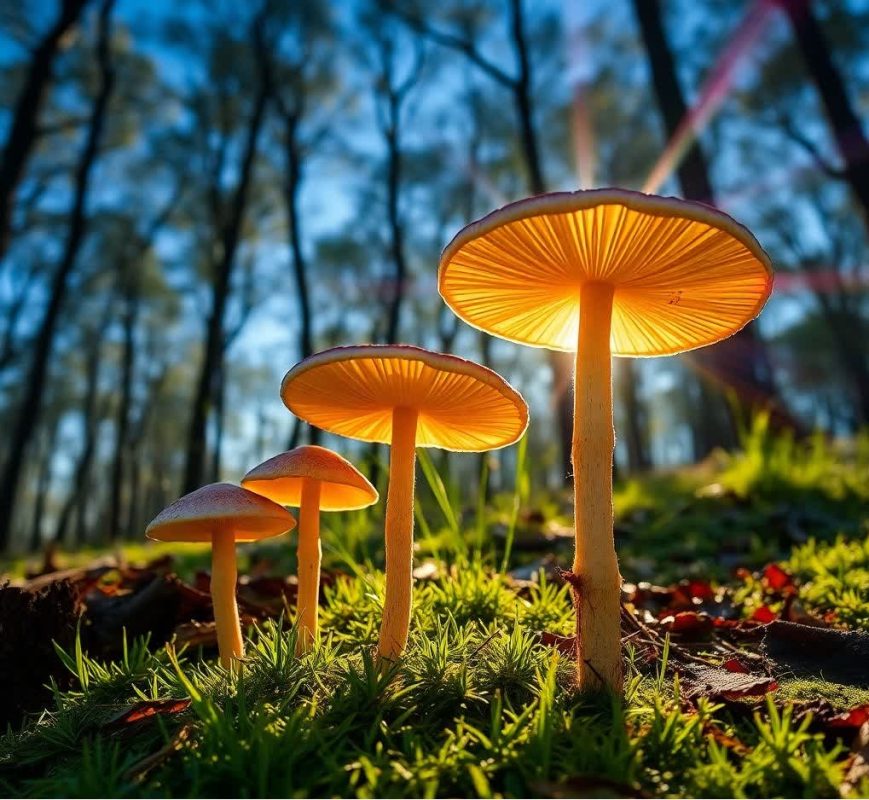MUSHROOM
Journey Into the Wild Mind: Using Psilocybin Mushrooms in Nature
In a world buzzing with noise, schedules, and screens, many people are seeking something deeper—a reconnection with themselves, with the earth, with something ancient and enduring. For some, this call leads them to nature. For others, it leads to psilocybin mushrooms. For a growing number of seekers, it’s both.
The Intersection of Nature and Psychedelics
Psilocybin mushrooms, long used in Indigenous rituals across the globe, are increasingly being explored in the West not just for therapeutic potential, but as tools for personal insight and spiritual connection. When used intentionally and respectfully, especially in natural settings, they can open doors to profound experiences—heightened sensory awareness, emotional release, and a sense of unity with the natural world.
But with that power comes responsibility.
Why Nature?
Nature strips away the artificial. In a forest, under a canopy of trees, or beside a quiet lake, there’s no algorithm shaping your reality—only raw presence. Psilocybin enhances perception, and being surrounded by the sights, sounds, and smells of the outdoors can amplify feelings of wonder, awe, and interconnection. The textures of bark, the dance of light on water, the rustle of wind through leaves—they don’t just look beautiful on mushrooms; they feel meaningful.
This setting can also foster a sense of safety and space. Unlike a loud or crowded environment, nature gives you the quiet to go inward.
Set and Setting: What Matters Most
If you’re considering using psilocybin mushrooms in nature, your set (mindset) and setting (environment) are crucial. Here are a few guiding principles:
- Intention matters. Are you seeking healing? Clarity? Connection? Even a simple intention like “I want to listen to myself” can provide grounding.
- Start small. If you’re inexperienced, a low dose (around 1 gram of dried mushrooms) is often enough for a meaningful experience.
- Choose a safe, familiar location. Avoid areas with cliffs, deep water, or other hazards. You want to feel secure, not on edge.
- Bring a sober trip-sitter. Especially for deeper doses, having someone you trust nearby can help if things become overwhelming.
- Respect nature. Leave no trace. Pack out what you pack in. Don’t damage plants or disturb wildlife.
- Plan ahead. Weather, phone signal, and transportation are all factors. Don’t wing it.
The Experience
Once the mushrooms begin to take effect—usually within 30 to 60 minutes—many report a deepening of their emotional and sensory world. Nature can seem to breathe with you. Trees feel alive in a new way. You may find yourself laughing, crying, or simply sitting still in awe. Time can melt away.
It’s common to experience insights about life, relationships, or your place in the world. These don’t always come in words, but in feelings—often subtle, sometimes overwhelming. Some describe the feeling as “coming home.”
Integration: The Real Work
The trip itself is just one part of the journey. What you do with the experience afterward matters even more.
Journaling, talking to a trusted friend, spending quiet time in reflection, or engaging in therapy can help make sense of what you experienced. Ask yourself:
- What did I feel or see that surprised me?
- Did anything shift in my perspective?
- How do I want to bring this insight into my life?
Final Thoughts
Psilocybin mushrooms are not for everyone, and they’re not a cure-all. But when approached with respect, caution, and reverence, they can be powerful allies in our lifelong journey of growth.
And when taken in nature—with humility and care—they can offer a reminder that we are not separate from the earth, but part of it. Not above it, but within it.
If you choose to walk this path, walk gently. The forest is listening.
Disclaimer: This blog is for educational and harm-reduction purposes only. Psilocybin mushrooms remain illegal in many jurisdictions. Always research the laws in your area, and consult with a healthcare provider if you have a history of mental health conditions.

